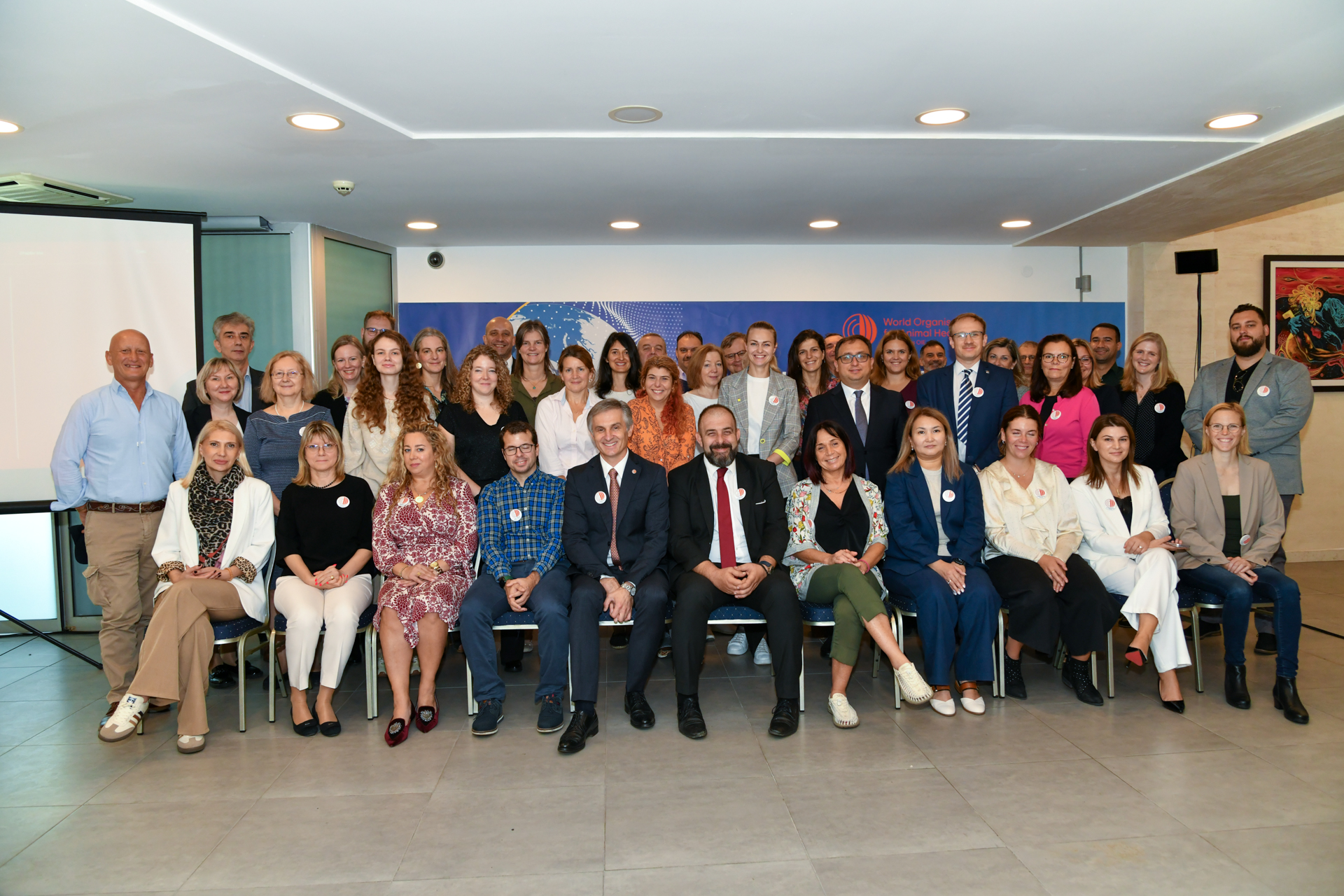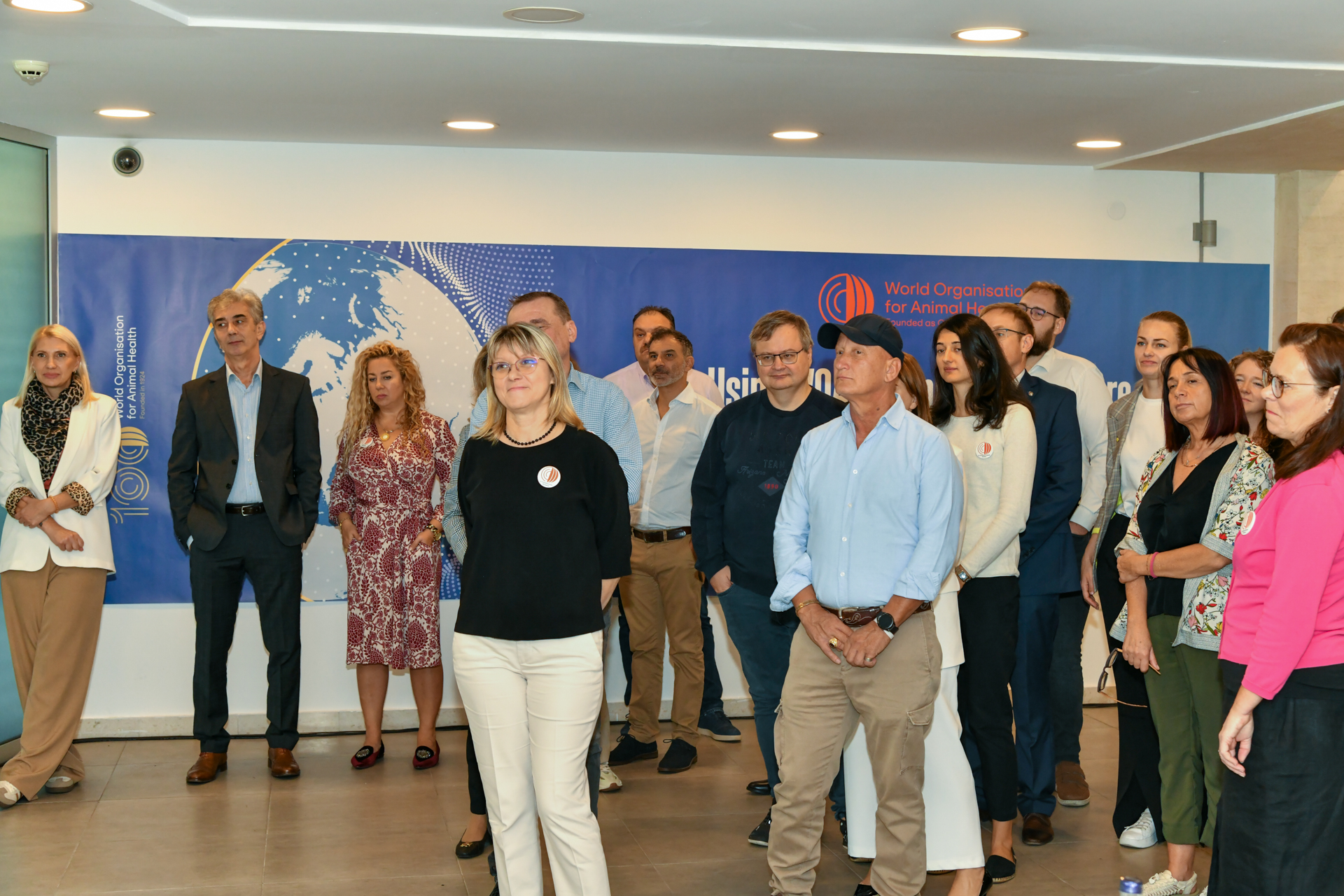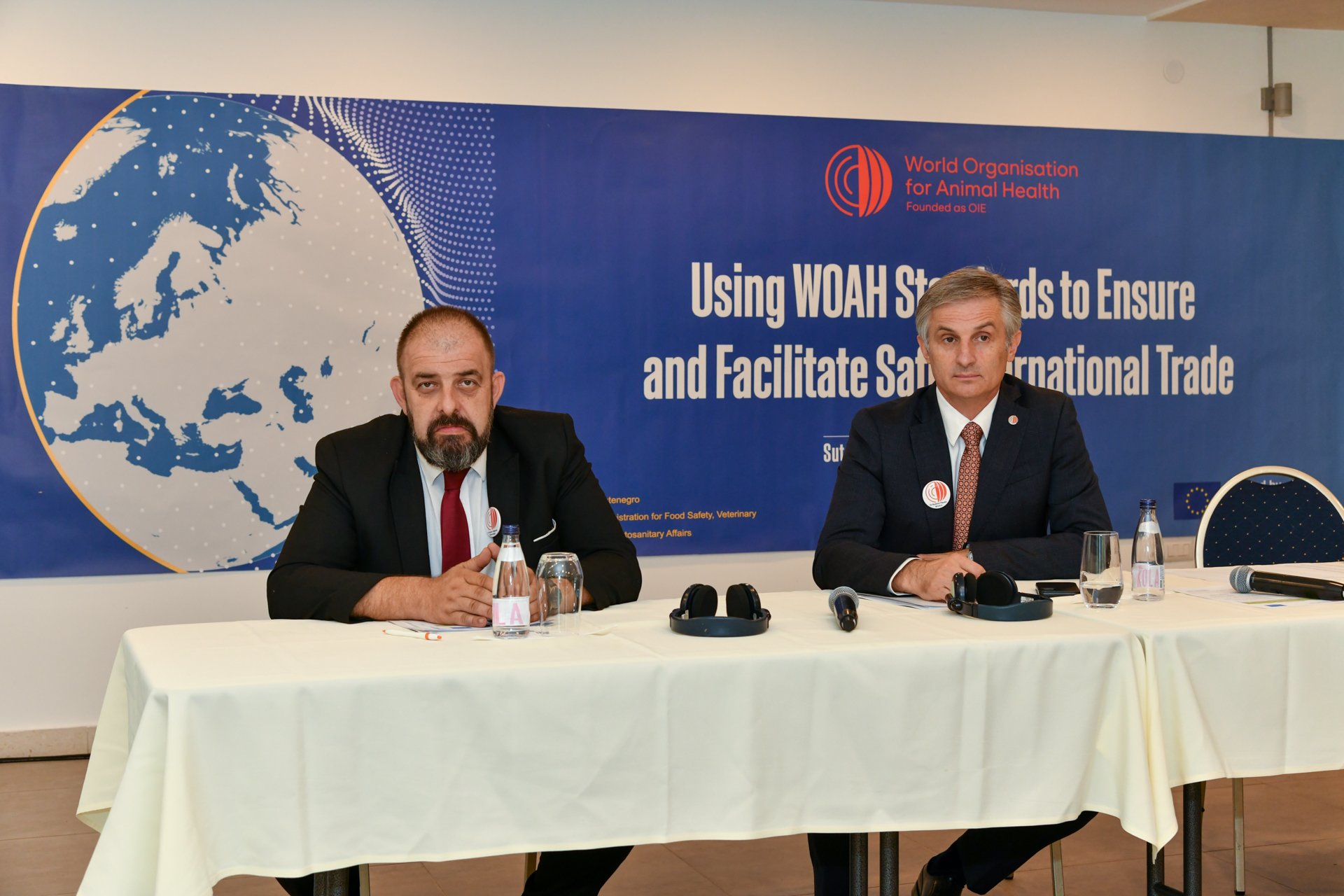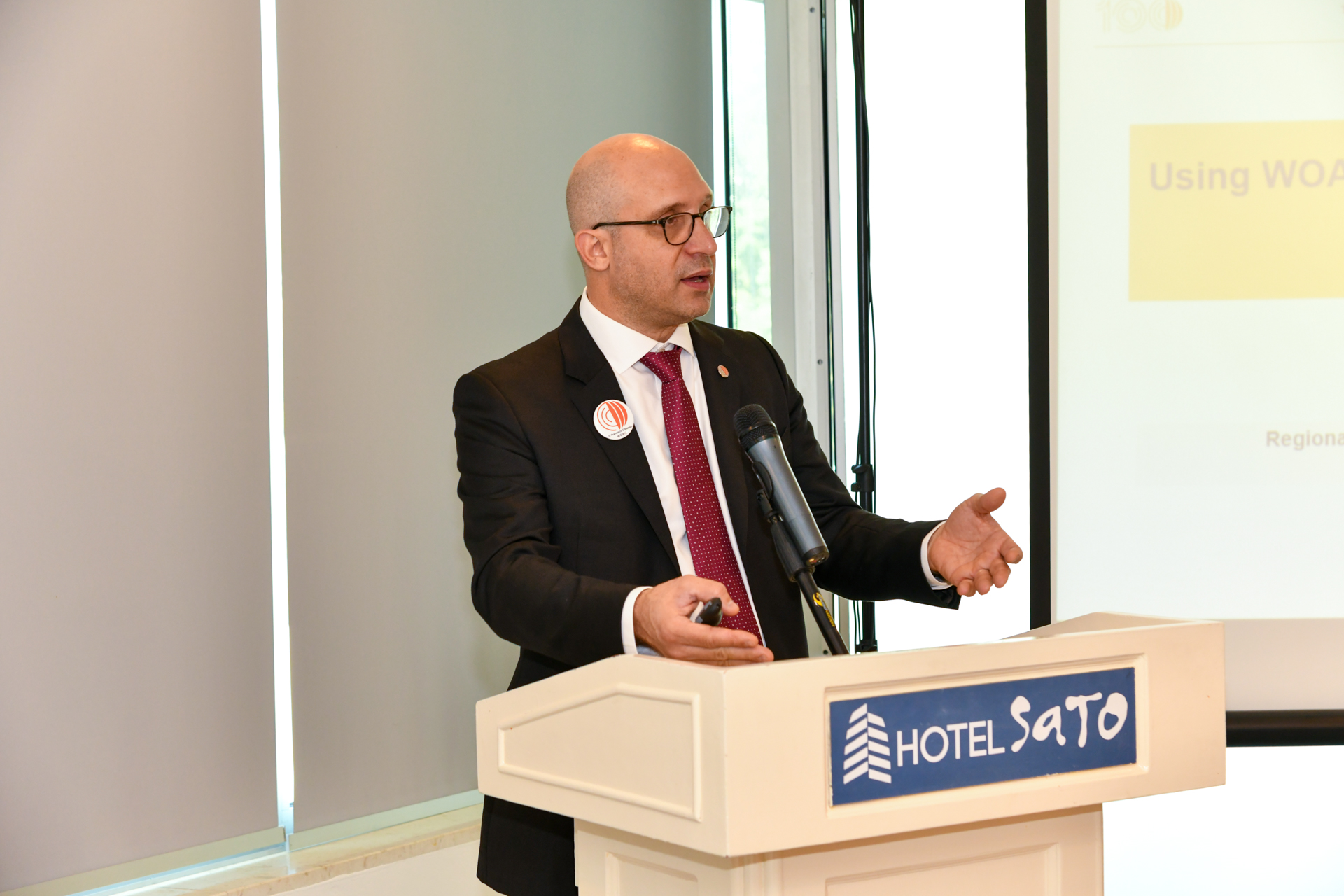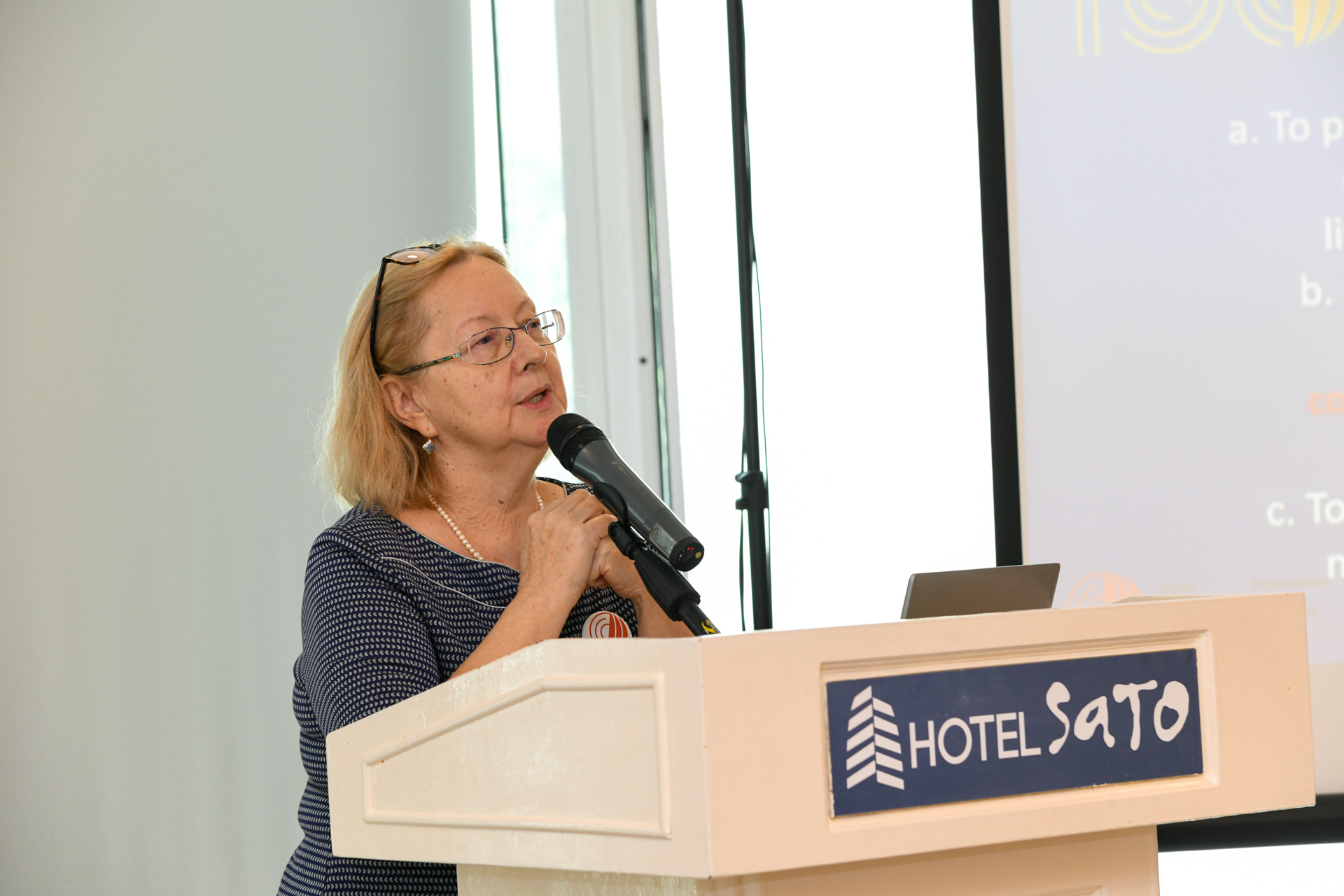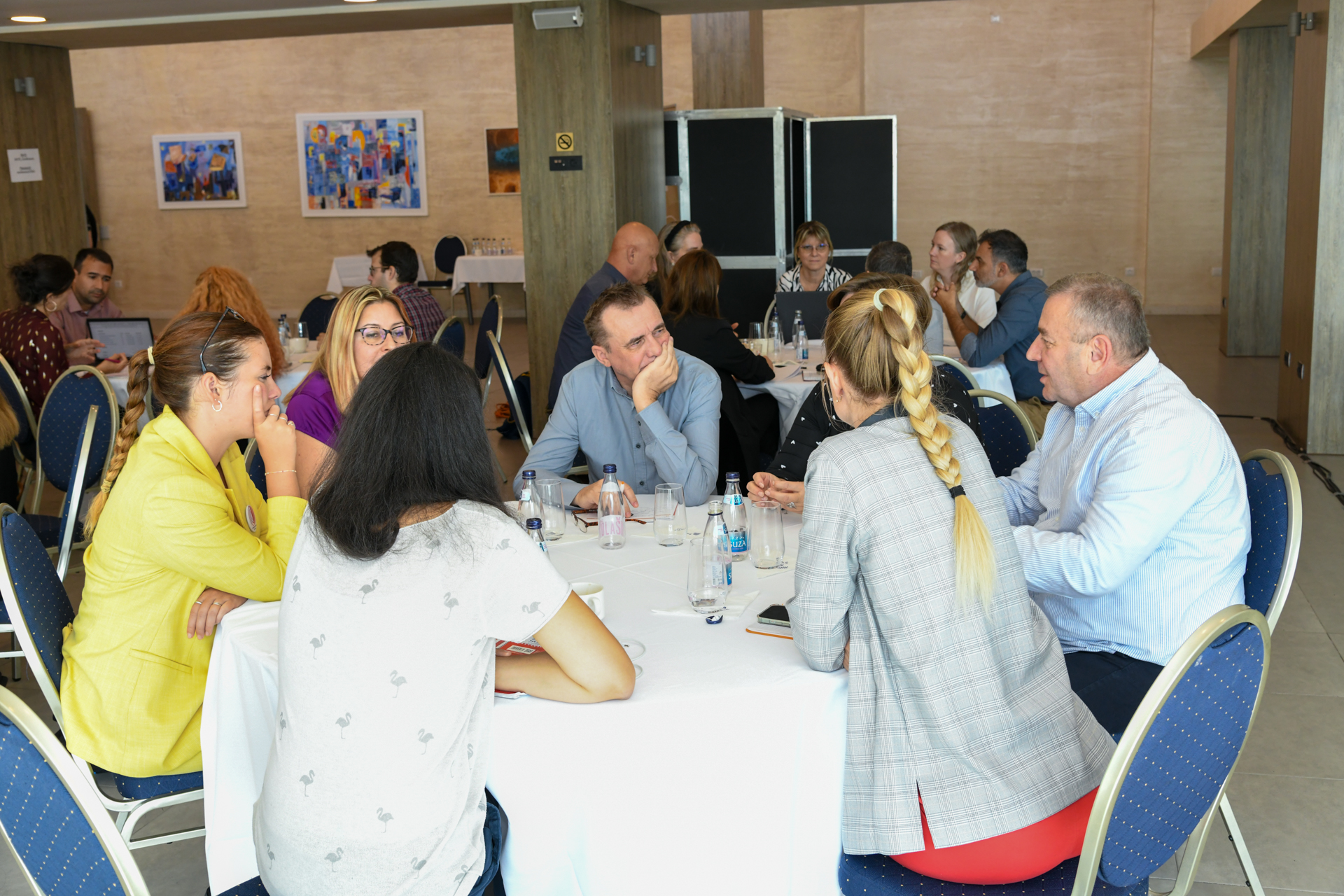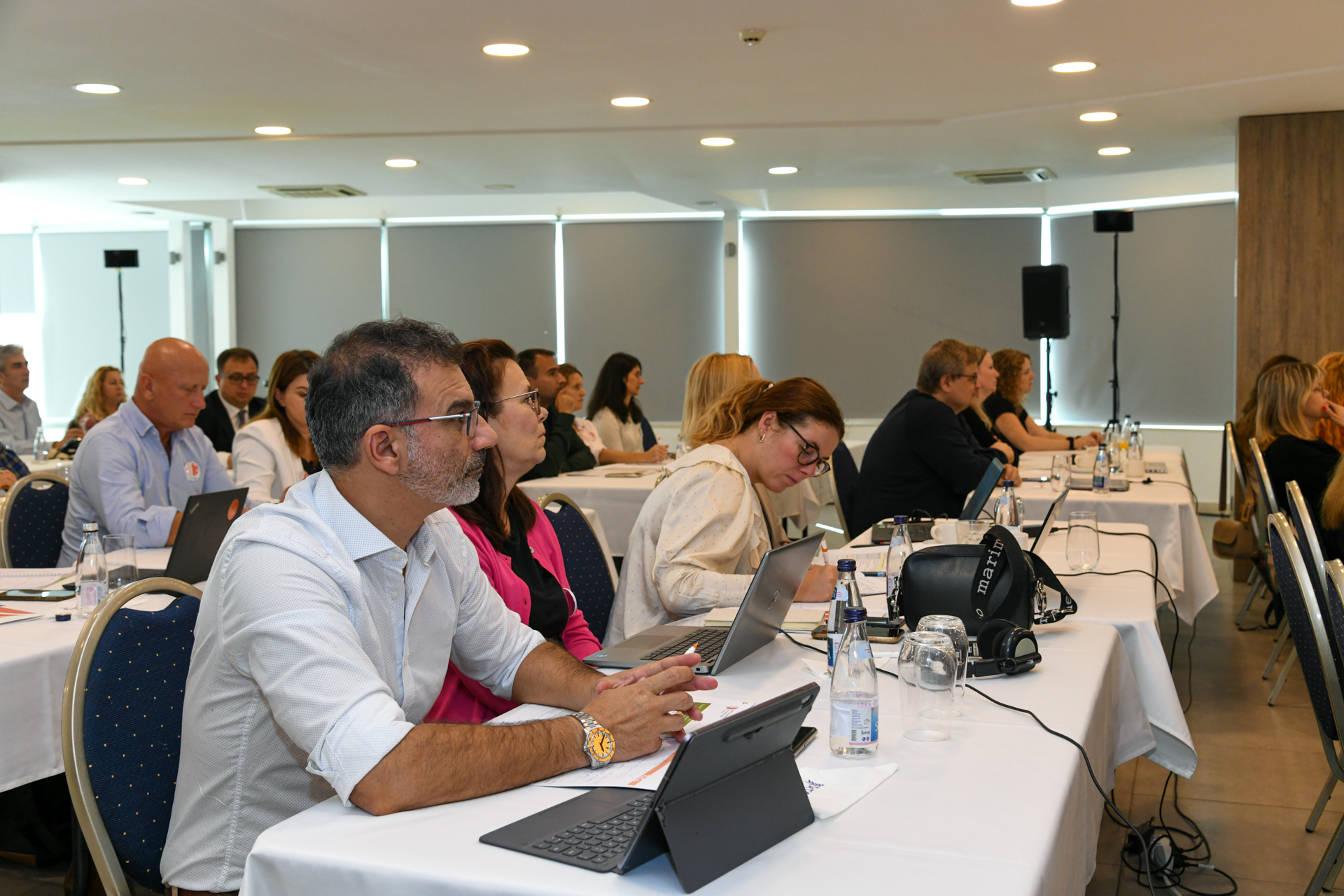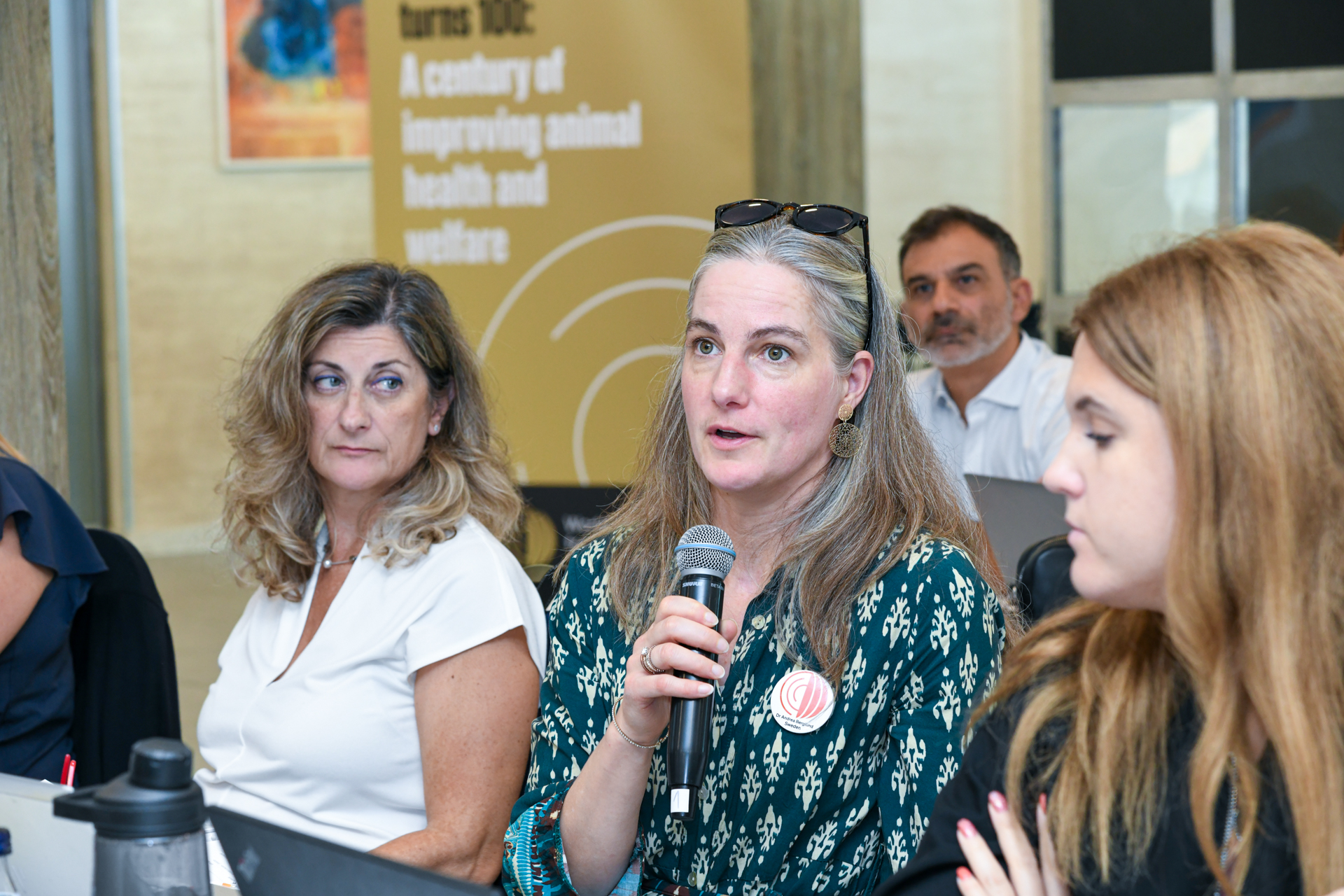The World Organisation for Animal Health (WOAH) develops international standards to improve animal health, animal welfare and veterinary public health worldwide, including preventing the spread of animal diseases and zoonosis via international trade, while avoiding unjustified sanitary barriers. However, some countries struggle to access international markets due to their inability to control or eradicate significant trade-impacting diseases. Other members face challenges due to a lack of confidence in the ability of their Veterinary Services to provide the required sanitary certification. Building understanding and trust among trading partners is essential to the development of sustainable international trade, and depends heavily on the transparency and the quality of Veterinary Services.
In Europe, a regional webinar on “OIE Standards – Facilitating Safe International Trade” was organized in October 2021. This webinar was attended by more than 100 experts from 39 WOAH Members who showed great engagement and interest in the topic. Building on this, the WOAH Regional Representation for Europe, in collaboration with the WOAH Standards Department and subregional offices in Astana and Brussels, organized a regional training workshop “Using WOAH Standards to Ensure and Facilitate Safe International Trade” focusing on the implementation of sanitary measures, and targeting WOAH Members Veterinary Services staff involved in international trade risk management.
The workshop was held in Montenegro (city of Sutomore) from 15-17 of October, funded by the European Union (DG SANTE, European Commission Directorate General Health and Food Safety) and supported by the Administration for Food Safety and Phytosanitary Affairs of Montenegro.
In total, 39 representatives from 35 countries participated in the training.
The agenda comprised lectures and work in groups.
Dr Budimir Plavsic (WOAH Regional Representative), Dr Bernard Van Goethem – online (DG SANTE), and Mr. Vladimir Djakovic (WOAH Delegate and CVO of Montenegro), welcomed the participants and highlighted the importance of WOAH standards for Veterinary Services to develop transparent and safe international trade.
Dr Francisco D’Alessio explained how import/export processes link with the WOAH Terrestrial Code and how standards impact international trade. During the workshop he elaborated on the principles of national official assurance systems based on WOAH standards, the key role Veterinary Services play and the importance of ensuring their quality. Following the demand of participants he also provided a summary of the main processes of WOAH standard-setting.
Dr Patricia Kelly provided an interactive presentation that allowed participants to revise their knowledge of WOAH standards, the international trade regulatory framework, and the key data from the Observatory relevant to the topic of the webinar.
Dr Marina Sokolova gave an overview of WOAH’s historical mandate and contemporary tools important for transparent international trade: a list of notifiable diseases, WAHIS, official disease status, self-declaration of freedom from disease, PVS and evaluation of veterinary services.
Dr Etienne Bonbon remotely presented how to define, develop, adapt and implement sanitary measures and utilize risk assessment in relation to international trade, in line with WOAH Standards. Also, he provided an overview of additional key principles in the Terrestrial Code, including population of origin and animal health status among others. Further, Dr Bonbon covered details on the principles of certification.
Dr Bruno Saimour presented on measures and procedures applicable at export and import to ensure the safety of international trade, and moderated activities on this topic completed via group work. These presentations and activities illustrated standards and practical approaches in the different Members from the farm to the point of exit to and from the point of entry to clearance of border controls. Dr Saimour also presented on how to adapt to changes and risk-based import controls, from the experience of the European Union.
The group work was completed as roundtable discussions among representatives of different countries. They chose the most relevant topics or gaps and applied their experience in utilizing the WOAH standards to the discussion scenarios.
The training facilitated a discussion on regional and country trade issues with speakers and participants. This discussion provided an opportunity for representatives of neighbouring countries to establish close working relations which will help to develop effective cooperation between countries.
It was agreed that WOAH Regional trainings on international trade should be regular with more in-depth discussion on concrete subjects.
Participants highlighted the value of maintaining good contact and communications on this matter and agreed to establish a regional network of international trade experts to continue communication.
During and after the meeting, participants, including WOAH delegates, welcomed this workshop and recognised the importance of organising such events on a regular basis, with technical presentations, exchange of practices, but above all, networking of national officers in charge of these activities and their operational liaison with WOAH staff. Another point underlined by the trainees was the active participation in the WOAH standard-setting process, which provides a great opportunity for members to contribute to WOAH international standards, including on trade, but on a scientific basis.
Dr Francisco D’Alessio, Deputy Head, WOAH Standards Department
Dr Akbar Aliyev, Head of Department, Food Safety Agency, Azerbaijan
Mrs Urska Galjot, Head of International Affairs Division, Administration for Food Safety, Veterinary Sector and Plant Protection, Slovenia
DAY 1 – Tuesday, 15 October
| 08:30 – 09:00 | Registration of participants | ||
| 09:00 – 09:15 | Official Opening | Dr Budimir Plavsic, WOAH Regional Representative for Europe
Dr Bernard Van Goethem, European Commission Representative (DG SANTE) (online) Dr Vladimir Djaković, Director, Administration for Food Safety and Phytosanitary Affairs, Montenegro |
|
| 09:15 – 09:45 | Introduction of the Seminar and participants | Dr Francisco D’Alessio, Deputy Head, WOAH Standards Department | |
| Session A. The international trade regulatory framework | |||
| 09:45 – 10:15 | Approach for the seminar, focus on animal health and national systems to support safety of international trade | Dr Francisco D’Alessio, Deputy Head, WOAH Standards Department | |
| 10:15 – 10:40 | Coffee break and group photo | ||
|
10:40-11:40
|
Revision of knowledge base (interactive session):
– WOAH Standards – WTO SPS Principles – Roles and responsibilities of importing/exporting countries |
Dr Patricia Kelly, WOAH Standards Department | |
| 11:40-12:20 | WOAH Tools supporting transparency of the Animal health situation: WAHIS, Official status and self-declarations | Dr Marina Sokolova, WOAH Regional Representation for Europe | |
| 12:20-13:00 | Q&A | All | |
| 13:00-14:00 | Lunch | ||
| Session B. Key principles for Safe trade | |||
| 14:00 – 14:45 | What is a “sanitary measure”, in practice? (and how it works) | Dr Etienne Bonbon, President of the WOAH Terrestrial Animal Health Standards Commission (online) | |
| 14:45 – 15:00 | “Population of origin” and “Animal health status”, why is this important? | Dr Etienne Bonbon, President of the WOAH Terrestrial Animal Health Standards Commission (online) | |
| 15:00 – 15:30 | Certification: importance and main principles | Dr Etienne Bonbon, President of the WOAH Terrestrial Animal Health Standards Commission (online) | |
| 15:30 – 15:45 | Q & A | All | |
| 15:45-16:00 | Coffee break | ||
| 16:00-17:30 | Roundtable discussions:
“Risk mitigation”, what is to achieve? “Risk mitigation”, what is the sequence? What are the typical components of sanitary measures for animal commodities? |
WOAH HQ and facilitators | |
| 18:30-21:00 | Dinner hosted by Montenegro
|
||
Day 2 – Wednesday, 16 October
| Session C. The process to ensure safe trade | |||
| 09:00 – 10:00 | Summary of key technical aspects of the process to ensure the safety of international trade «From the farm to point of exit » | Dr Bruno Saimour, Team leader
Import controls and Northern Ireland Liaison Team (NILT), European Commission, |
|
| 10:00 – 11:30 | Group exercise
The process «From the farm to point of exit »
|
Dr Bruno Saimour, Team leader
Import controls and Northern Ireland Liaison Team (NILT), European Commission, Dr Francisco D’Alessio, Deputy Head, WOAH Standards Department WOAH Facilitators per group |
|
| 11:30-12:00 | Coffee break | ||
| 12:00 – 13:00 | Discussion | All | |
| 13:00-14:00 | Lunch | ||
| 14:00-15:00 | Summary of key technical aspects of the process to ensure the safety of international trade « From the point of entry to clearance » | Dr Bruno Saimour, Team leader
Import controls and Northern Ireland Liaison Team (NILT), European Commission, |
|
| 15:00 – 15:15 | Coffee break | ||
| 15:15-17:00 | Group exercise
The process «From the point of entry to clearance»
|
Dr Bruno Saimour, Team leader
Import controls and Northern Ireland Liaison Team (NILT), European Commission, Dr Francisco D’Alessio, Deputy Head, WOAH Standards Department WOAH Facilitators per group |
|
| 17:00 – 17:30 | Discussion | ||
| 18:30-20:30 | Dinner hosted by WOAH | ||
Day 3 – Thursday, 17 October
| Session D. What is needed to do the work | |||
| 09:00-09:30 | Recap from days 1 and 2 | Dr Francisco D’Alessio, Deputy Head, WOAH Standards Department | |
| 09:30 – 10:15 | How to adapt to changes: risk-based import controls, certification: the example of EU | Dr Bruno Saimour, Team leader
Import controls and Northern Ireland Liaison Team (NILT), European Commission, |
|
| 10:15 – 10:45 | Evaluation of Veterinary Services, importance in trade, WOAH Standards and available tools
“National official assurance systems”, what is it, why it is so important, and how to use the Terrestrial Code to build it? |
Dr Francisco D’Alessio, Deputy Head, WOAH Standards Department | |
| 10:45-11:00 | Coffee break | ||
| 11:00-11:40 | WOAH Standards setting process & how to participate | Dr Francisco D’Alessio, Deputy Head, WOAH Standards Department | |
| 11:40 – 12:00 | Closing | Dr Vladimir Djaković, Director, Administration for Food Safety and Phytosanitary Affairs, Montenegro
Dr Budimir Plavsic, WOAH Regional Representative for Europe |
|
| 12:00-13:00 | Lunch | ||
